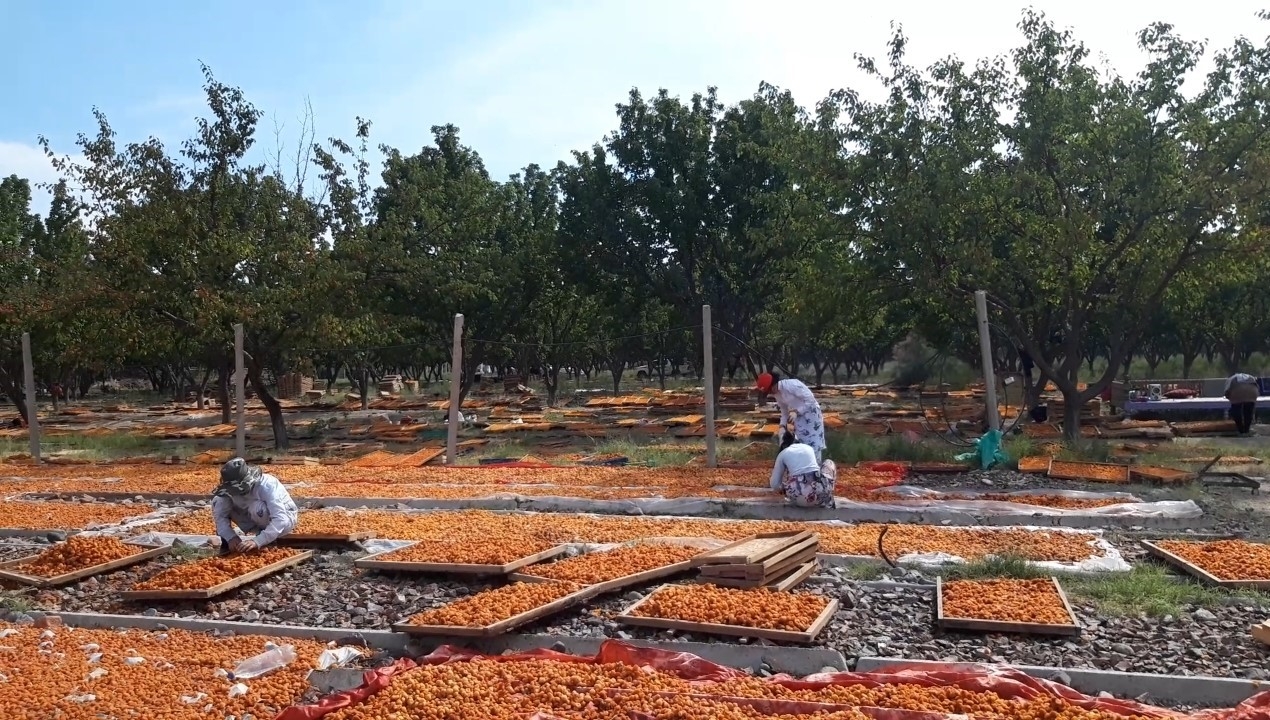
This project aimed to improve the export competitiveness of Tajikistan's small and medium-sized enterprises, particularly in the apricot and honey sectors. The project focused on enhancing food safety practices in these value chains through improved understanding and the management of veterinary drugs, pesticides and other contaminants. This was expected to reduce the risk of contamination in processed foods and improve food safety and quality.
Tajikistan's agricultural sector employs about 64% of the country's population and contributes to 28% of GDP, making it important for overall economic growth. Aided by government support, the fruit and vegetable sector has seen growth over the past 10 years. The main export markets for food and agricultural products are Russia, Turkey, the EU and other Central Asian states.
Favorable climatic conditions, good water supply and fertile soil enable the production of high-quality fruit and vegetables, particularly in the Sughd and Khatlon regions in the north and south, respectively. Apart from fruit (apricots, peaches, apples, lemons and cherries), farmers in the country cultivate almonds, pistachios, onions and cotton.
Despite these favorable conditions, small and medium-sized enterprises faced significant barriers to trade due to noncompliance with maximum residue levels. While a basic regulatory framework for SPS standards is in place, due to a lack of funds, capacity and organization, Tajikistan's agricultural products often do not comply with international standards.
By incorporating regional and international best practices in the sustainable and effective use of veterinary drugs and pesticides, this project aimed to regain and access new markets for apricot and honey by improving the monitoring of maximum residue levels.
Established and operationalized a regulatory system for veterinary drugs, pesticides and other contaminants
- Tajikistan developed its first national residue monitoring plan for honey and apricots to monitor residues of veterinary drugs, pesticides and other contaminants. Laboratory testing activities conducted as part of the project highlighted ongoing improvements to reduce levels of harmful substances in honey and apricots.
Strengthened capacity for the safe use of veterinary drugs, pesticides and other contaminants
- A database was created that includes information on all registered veterinary drugs and pesticides in Tajikistan, as well as substances used by producers. This database underpins the new monitoring plan and provides the necessary information to expand the use of authorized products. Tajik officials also proposed 11 new maximum residue limits for honey production through a legislative amendment.
- More than 300 apricot farmers and beekeepers participated in training on the proper use of pesticides and veterinary drugs. In addition, 30 local trainers and food safety advisers benefitted from new knowledge on risk-based food control systems and monitoring mechanisms, creating a pool of in-country experts.
The COVID-19 pandemic severely limited opportunities to build close working relationships between organizations in Tajikistan and the project implementation team. This created challenges for communication, increased the need for contingency planning and slowed delivery. While much can be achieved by working remotely, travel is still essential to develop trust and good working relationships.
Conducting a stakeholder analysis at the outset of the project helped identify new opportunities to leverage partnerships for better results and ensure greater coherence with other ongoing work. Building on this analysis, the project stakeholders identified ways to collaborate with other donor-supported projects. This created synergies and ensured the effective use of resources.
Documenting knowledge transferred during training activities in user-friendly guides or handbooks is a helpful resource to support ongoing learning and knowledge transfer.